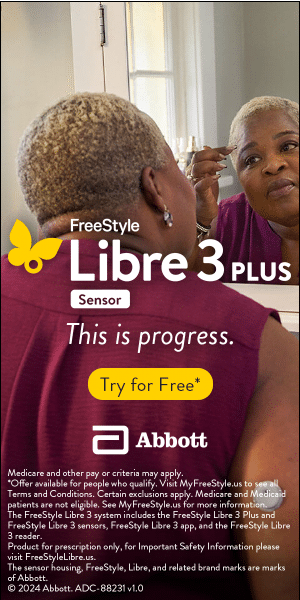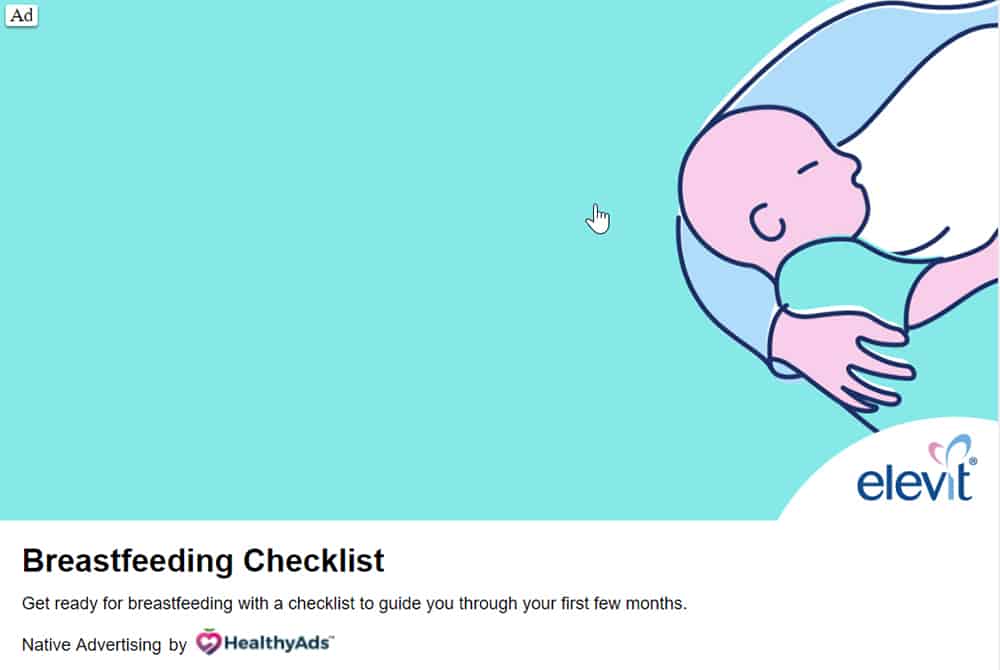What are the 4 types of Advertising
Health and medical brand advertisers often struggle when it comes to choosing the best possible advertising medium available. It’s certainly understandable. Different types of ads work better for different types of products, services, and brands. How can an advertiser choose the right one? It all comes down to understanding exactly what the 4 types of advertising are and what they are good at doing marketing-wise.
For example, smaller businesses may want to quickly boost their customer base and pull in earnings fast to get a head start. These businesses should definitely be investing in digital advertising in at least a couple of categories, depending on the type of product they sell, to experiment and see which type of advertising pulls in the most leads. A larger business, on the other hand, may want to hone in on one type of advertising that seems to be working well and pulling in a decent ROI.
What are the 4 Types of Advertising in Health Sector?
Understanding Health Advertising
Definition of Health Advertising
Lets start with a definition. Health advertising refers to the promotion of health-related products, services, or ideas through various media channels. This can include advertising pharmaceuticals, medical devices, health supplements, and healthcare services. The primary goal of health advertising is to inform, educate, and persuade the target audience about the benefits of a particular health-related product or service. By leveraging different advertising mediums, health advertisers aim to reach a broad audience, ensuring that their message is both seen and understood.
Importance of Health Advertising
Health advertising plays a pivotal role in promoting public health, raising awareness about health issues, and influencing health-related behaviors. For healthcare providers, pharmaceutical companies, and health organizations, effective advertising is essential for reaching their target audience, building brand awareness, and driving sales. Beyond commercial benefits, health advertising can significantly improve health outcomes, reduce healthcare costs, and enhance the overall quality of life. By educating the public about health products and services, advertisers can encourage healthier lifestyles and informed decision-making.
Traditional Advertising
Overview of Traditional Methods
Traditional advertising in the health sector encompasses a range of tried-and-true methods such as print advertising, broadcast advertising, and direct mail advertising. These methods have been staples in the industry for decades, effectively reaching patients and promoting healthcare services.
Print advertising in health-focused magazines and newspapers remains a powerful tool for targeting specific demographics. For instance, a health supplement company might place ads in a wellness magazine to reach health-conscious readers.
Broadcast advertising on television and radio offers the advantage of reaching a broader audience. A pharmaceutical company might use a TV commercial to introduce a new medication, leveraging the wide reach of broadcast media to inform and educate the public.
Direct mail advertising involves sending brochures, flyers, or postcards directly to patients’ homes. This method allows for a personalized touch, making it an effective way to promote healthcare services. For example, a local clinic might send out mailers to residents in the area, highlighting their new services or special offers.
Role in the Health Sector
Traditional advertising continues to play a crucial role in the health sector, particularly for hospitals, medical practices, and pharmaceutical companies. These organizations rely on traditional methods to build brand awareness, promote new services, and educate the public about health-related products.
For instance, a hospital might use print advertising to announce the opening of a new cancer treatment center, targeting readers of local newspapers and health magazines. Similarly, a pharmaceutical company might invest in broadcast advertising to promote a new medication, using TV and radio commercials to reach a wide audience.
Direct mail advertising is often used by medical practices to maintain a personal connection with their patients. Sending out appointment reminders, health tips, or information about new services can help keep patients engaged and informed.
So what are the four types of advertising, and how can one choose the best advertising type for their brand?
What Are the 4 Types of Digital Advertising?
Health and medical brand advertisers often struggle when it comes to choosing the best possible advertising medium available for their ad campaigns. It’s certainly understandable. Different types of ads work better for different types of products, services, and brands. How can an advertiser choose the right one? It all comes down to understanding exactly what the 4 types of advertising are and what they are good at doing marketing-wise. Creating integrated ad campaigns that utilize both print and digital advertisements is crucial for maximizing reach and effectiveness.
For example, smaller businesses may want to quickly boost their customer base and pull in earnings fast to get a head start. These businesses should definitely be investing in digital advertising in at least a couple of categories, depending on the type of product they sell, to experiment and see which type of advertising pulls in the most leads. A larger business, on the other hand, may want to hone in on one type of advertising that seems to be working well and pulling in a decent ROI.
So what are the four types of advertising, and how can one choose the best advertising type for their brand?
While there are many different “types” of advertising, the following four categories cover a vast majority of all digital advertisements. They also are not all mutually exclusive.
1. Display Advertising
Display advertising—often called “banner” advertising—is one of the most common and versatile forms of digital marketing. These ads appear as visual banners across websites, blogs, and search results, often in the form of horizontal placements at the top of a page or vertical units along the side margins. Display ads can be static images or dynamic formats, including HTML5 animations or short looping GIFs.
As one of the four core formats explored in What are the 4 Types of Health Advertising, display advertising plays a key role in boosting brand visibility and message recall. In the health and wellness category, it allows brands to visually communicate their value proposition quickly and effectively.
Display advertising is particularly effective for:
✅ Building brand awareness for supplements, wellness products, telehealth services, and over-the-counter remedies
✅ Driving qualified traffic to product pages, educational content, or lead-generation forms
✅ Establishing trust using recognizable certifications like USDA Organic, Non-GMO Project Verified, or clinically tested claims
✅ Featuring product visuals, such as packaging, hero ingredients, or before-and-after imagery (when compliant with advertising guidelines)
These ad formats are ideal for health-related products and services that don’t require in-depth medical disclaimers within the creative itself. Display advertising is also commonly deployed through contextual targeting, where ads appear alongside relevant content—for example, a probiotic ad next to an article on gut health.
When paired with strategic placements and health-focused audience targeting, display advertising can drive strong click-through rates (CTR) and contribute meaningfully to both brand awareness and consumer engagement.
2. Video Advertising
Video advertising is a highly engaging format that uses sight, sound, and storytelling to connect with audiences—making it especially effective for health and wellness brands. As highlighted in What are the 4 Types of Health Advertising, video advertising allows advertisers to convey emotion, demonstrate product usage, and educate consumers in a compact, digestible format.
Video ads can be used across a range of environments, including online video placements such as pre-roll, mid-roll, and post-roll, as well as Connected TV (CTV) where health-conscious viewers are streaming wellness content on the big screen.
Health-focused brands use video advertising to:
📹 Showcase real-life application of products—like using a glucose monitor or preparing a heart-healthy meal kit
🧬 Break down complex topics—such as supplement ingredients, skincare routines, or product usage instructions
💬 Tell emotional health stories through testimonials, founder narratives, or wellness journeys
📱 Deliver quick-hit educational messages or highlight top-line product features to boost awareness and recall
⏱️ Leverage a range of durations, including 8, 15, 30, 60, and 90-second formats to suit different campaign objectives and placements
Video advertising is also ideal for contextual placements, aligning your health message with relevant content—for example, an immunity supplement ad before a video on cold and flu prevention, or a meditation app spot on a CTV wellness channel.
With strong view-through rates, emotional impact, and multi-screen reach, video advertising is a must-have for health marketers looking to educate, inspire, and drive action.
If you’re a medical or pharmaceutical brand, video ads are an excellent choice for sharing your mission or product with full disclaimers.
Here is an example of a 90 second Video Ad for Wegovy ;
3. Mobile Advertising
Mobile advertising refers to ads delivered on smartphones and tablets through mobile browsers, apps, or games. As explored in What are the 4 Types of Health Advertising, mobile advertising plays a crucial role in reaching health-conscious consumers wherever they are—especially as mobile devices have become the primary source of online health information.
With high daily screen time and constant connectivity, mobile offers opportunities to engage users in real-time—whether they’re reading a wellness article, tracking their steps, or researching symptoms on the go.
Health-focused brands use mobile advertising to:
📱 Reach users in health apps like fitness trackers, nutrition journals, or meditation platforms
🧭 Target users contextually based on health-related browsing or app activity
🖼️ Serve display, video, or native formats optimized for smaller screens and fast-loading environments
🔄 Encourage quick actions like “Shop Now,” “Book a Virtual Visit,” or “Download App” for health tools and services
📐 Leverage mobile-optimized ad sizes, including 300×250, 300×50, and 320×50, which are widely supported across mobile apps and web environments
Mobile ads are typically designed with vertical layouts, thumb-friendly buttons, and concise messaging to capture attention in a scroll-heavy environment. They work across both mobile web and in-app placements, offering scale, flexibility, and performance.
Want to meet health-conscious consumers where they spend the most time? Mobile advertising is essential to every health campaign.
4. Native Advertising
Native advertising blends seamlessly into the content environment it appears in—matching the form and function of the surrounding editorial or platform. As explained in What are the 4 Types of Health Advertising, native advertising is designed to feel less intrusive and more informative, making it a natural fit for health and wellness brands that want to educate and engage.
Unlike traditional display ads, native ads often appear as “sponsored” content within article feeds, content recommendation widgets, or search results. The key advantage of native is that it matches the tone and appearance of the site, increasing user trust and interaction.
Health-focused brands use native advertising to:
🧠 Educate readers on topics like nutrition, disease prevention, mental wellness, or ingredient benefits
🖼️ Present as a combination of image, headline, and description, optimized for relevance and click-through
📝 Distribute health-related articles, blog posts, or advertorials that provide value while softly promoting a product or service
🔎 Appear in content feeds or recommendation boxes, often adjacent to relevant articles (e.g., a probiotic ad next to an article on gut health)
📊 Drive traffic to long-form content, landing pages, or product education hubs where users can explore health topics in depth
Because native ads look and feel like regular editorial content, they often perform well in terms of engagement, time on site, and post-click behavior—especially when aligned with consumer intent and placed within trusted health environments.
Want to educate health-conscious consumers in a format they trust? Consider native advertising for your next campaign.













